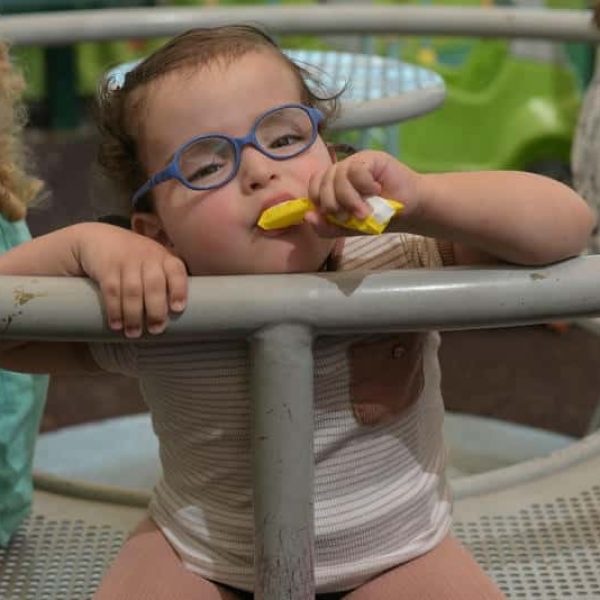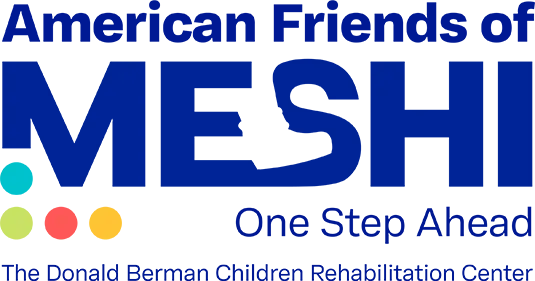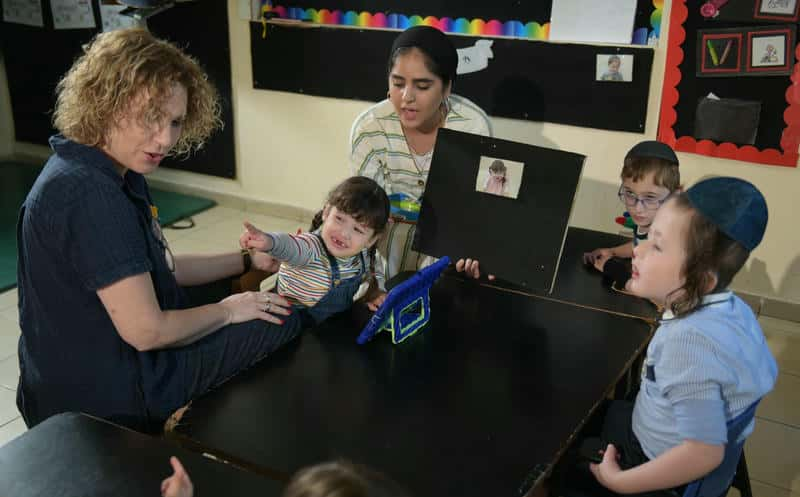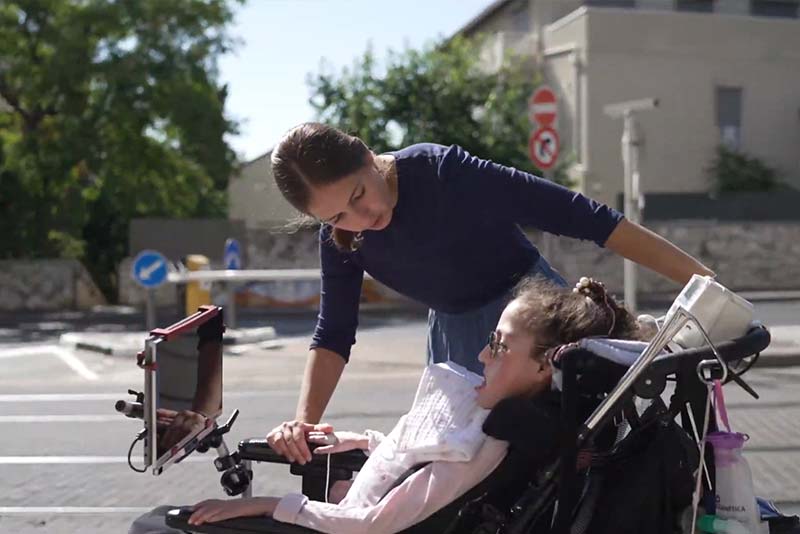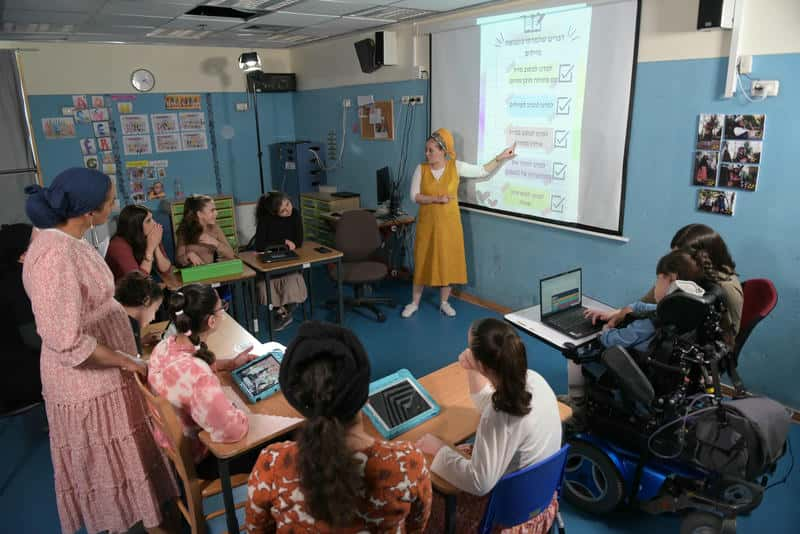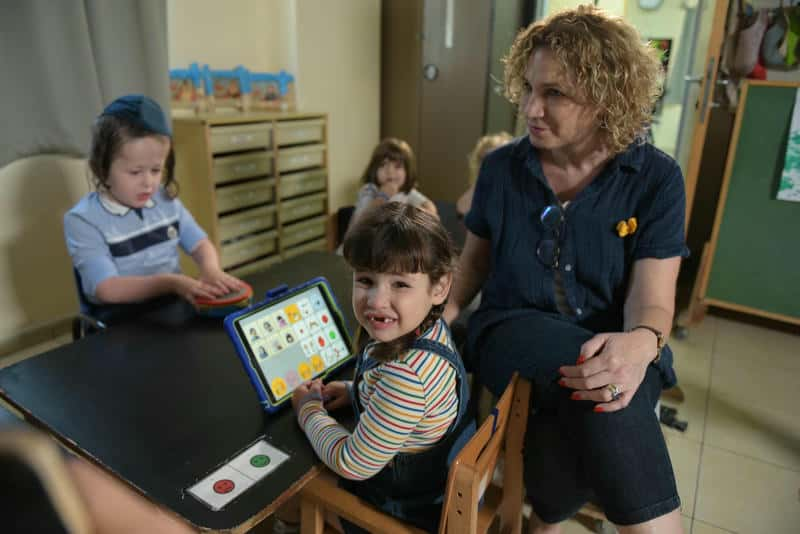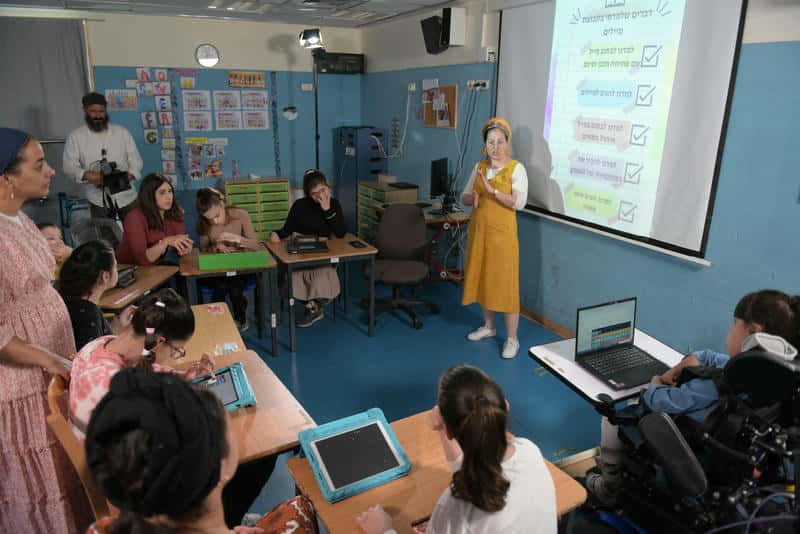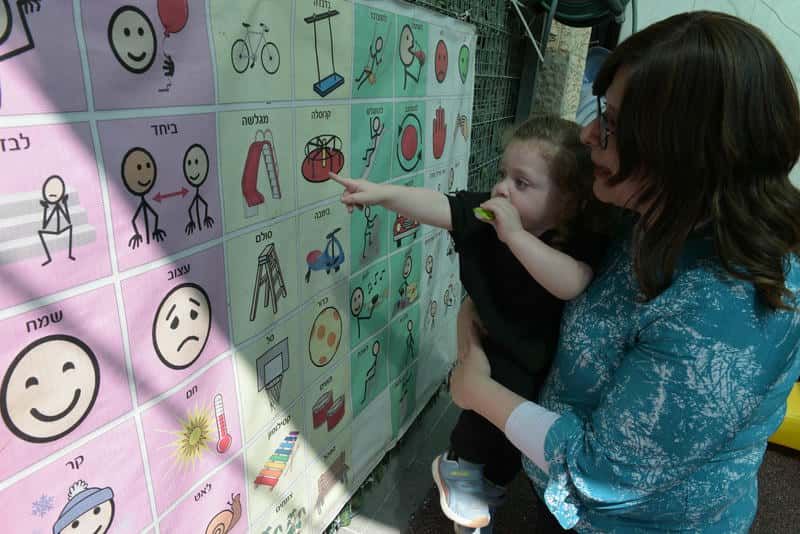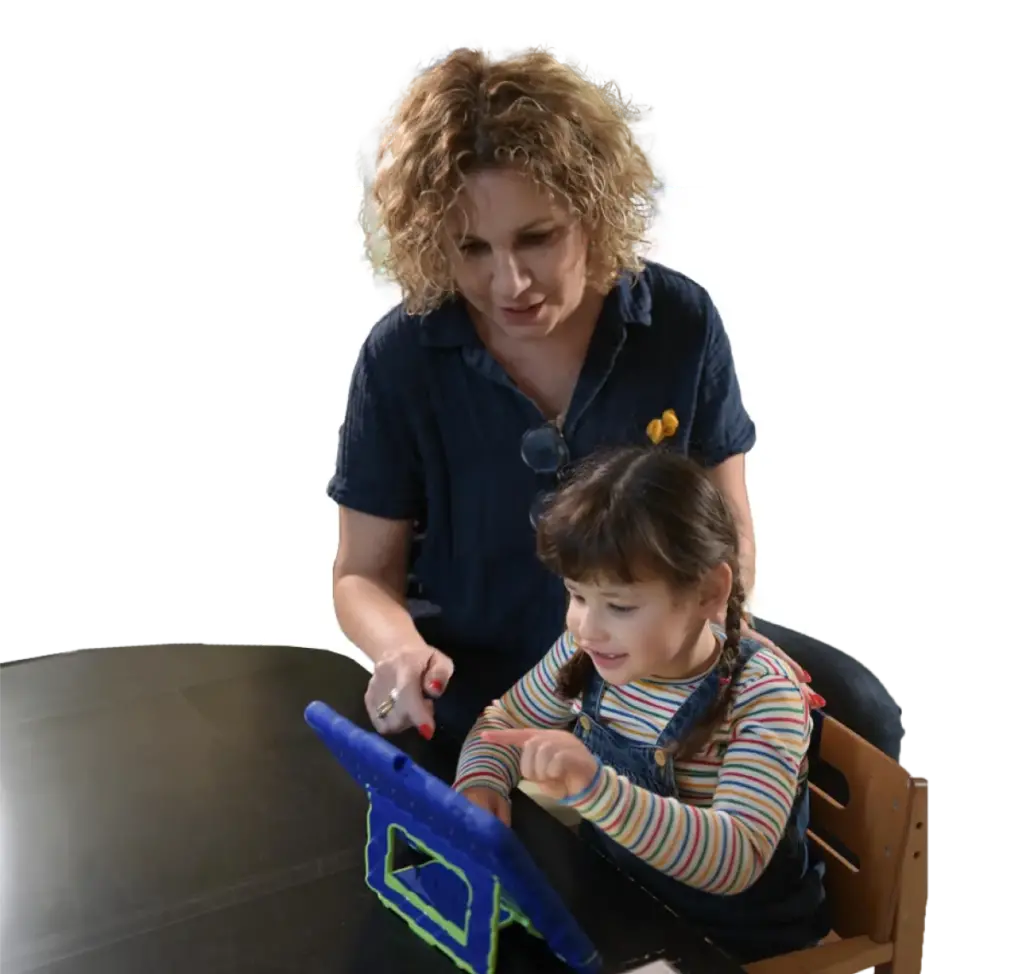
דף הבית 〱 Areas of Activity 〱 Speech-Language Therapy
Speech-Language Therapy
Within Meshi’s holistic circle of care, SLT teams advance oral-motor functions and expressive and receptive communication abilities—enhancing the child’s capacity to interact effectively across all life settings.
Recognizing that communication is key to self-expression and social belonging, Meshi’s Speech-Language Therapy (SLT) teams support each child in reaching their full communicative potential—whether by improving speech and language abilities or by accurately matching and utilizing Augmentative and Alternative Communication (AAC) tools.
The SLT teams address a wide range of communicative and social skills, while considering all physiological, cognitive, emotional, and environmental factors involved. This includes monitoring auditory functions, speech intelligibility, language-learning connections, functional language use, social-pragmatic understanding, and oral-motor functions (such as chewing and swallowing).
Each child receives a personalized, multidimensional intervention plan that spans all life domains and settings. Goals are promoted in the child’s natural environments and embedded in their daily routines, through close collaboration with families and the interdisciplinary team.
Meshi’s SLT programs aim to maximize self-expression and foster effective communication by:
- Enhancing comprehension and expression—across reading, writing, and spoken language
- Developing verbal and non-verbal skills for social interaction across settings
- Improving speech sound production and intelligibility, while supporting hearing challenges
- Customizing and utilizing all types of AAC systems
- Enhancing oral-motor functions, including feeding and swallowing
Structure & Practice
Each Meshi center has a dedicated Speech-Language Therapy (SLT) team utilizing the Meshi Approach. The Head of each team is a senior therapist—who shapes intervention guidelines and oversees interdisciplinary collaborations, as part of the management team. Licensed therapists provide both individual and group sessions; build personalized, holistic intervention plans; match and adapt AAC tools; and offer ongoing support to the families, multidisciplinary team, and Communication Facilitators—a role pioneered at Meshi.
The Communication Facilitators are specialized support staff, certified in special education and trained in language, communication and AAC. Guided by the SLT clinicians, they accompany students throughout daily routines and provide hands-on support—enabling high-frequency, spontaneous practice across natural settings.
Heads of Speech-Language Therapy
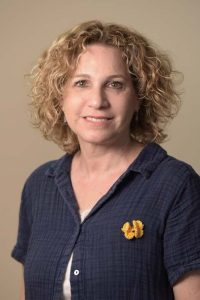
Ruth Ben Harush
Lead Speech-Language Therapist, Early Development Center
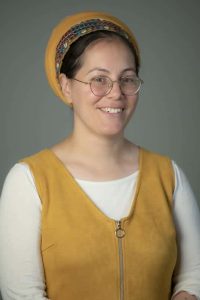
Dina Rabin
Lead Speech-Language Therapist, Jerusalem School
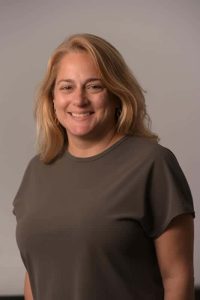
Noa Porat Lotan
Lead Speech-Language Therapist, Bnei Brak School
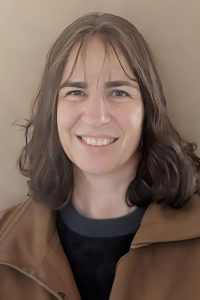
Esti Kushlevsky
Lead Speech-Language Therapist, Binat Danielle Yeshivah
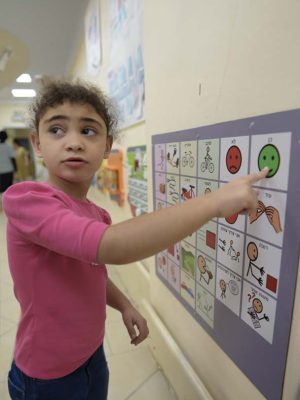
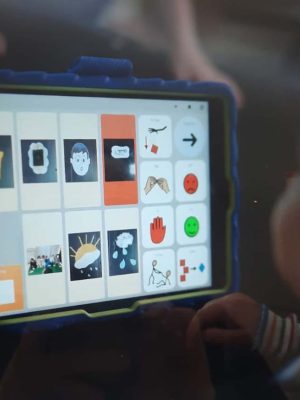
Broad AAC Expertise
Meshi has developed extensive expertise in Augmentative and Alternative Communication (AAC)—adaptive methods, devices, and strategies for those facing speech challenges. Speech-Language Therapy and Assistive Technology teams specialize in identifying, customizing, and implementing all types of AAC—including cutting-edge solutions based on touch, pointing and eye gaze technology.
Aiming to enable every child to communicate effectively across all settings at any given time, Meshi provides access to these diverse, advanced tools in every center—enabling optimal, experience-based matching, tailored to each child’s needs, abilities, and preferences. The teams emphasize collaboration with families, educators, and professionals, while providing hands-on training on the child’s AAC tools— embedding them in daily routines across learning, play, therapy, and social interactions.
This AAC expertise empowers Meshi to meet every challenge through holistic, early-stage interventions, and to lead communication-accessibility initiatives in diverse public spaces.
Innovation at Meshi
Multidisciplinary Functional Feeding Programs
Meshi’s Speech-Language Therapy (SLT) teams hold extensive expertise in feeding and oral-motor functions in children with complex disabilities—leading interdisciplinary interventions tailored to each child’s challenges, age, cognitive level, and clinical profile.
Programs are designed and delivered through close collaboration between specialized SLT clinicians, occupational therapists, and emotional therapists. The team is further supported by a dedicated dietitian and maintains ongoing coordination with physicians, gastroenterologists, and community clinics. This enables a holistic approach, addressing all aspects impacting the child’s feeding: oral-motor functions like chewing and swallowing; motor or sensory-regulation challenges related to textures and temperatures; tube-weaning processes (e.g., NG or gastrostomy); developmental delays; and emotional or behavioral difficulties.
Each program integrates targeted individual therapies, hands-on support during real-life mealtimes, and customized environmental adaptations—developed to ensure safe eating while promoting independent feeding skills.
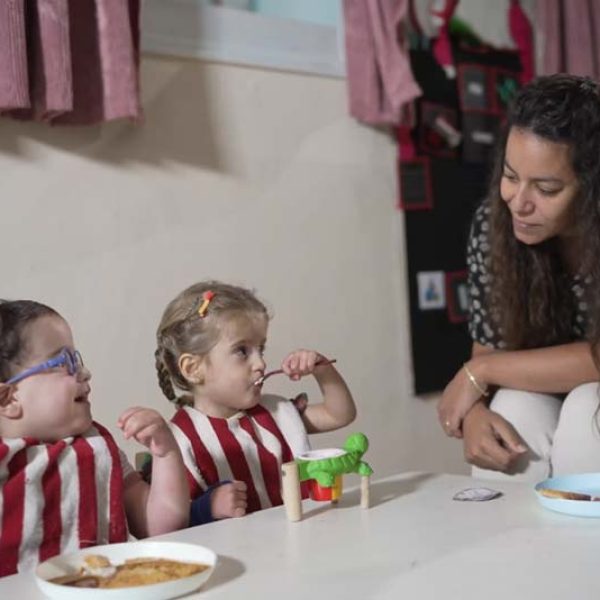
Pioneering Communication Support
Effectively implementing AAC tools requires significant resources—often beyond the valuable capacity of speech-language therapists. To meet this challenge, Meshi developed the internal role of Communication Facilitators—specialized support staff integrated into daily routines under SLTs guidance.
Working closely with children, families, and professional teams, Communication Facilitators provide hands-on support for optimal AAC use—consistently embedding clinician-directed tools and strategies across all life settings. They accompany children through daily activities, facilitating real-time communication during learning, play, therapy, and social interactions. They also continuously adjust AAC tools to match each child’s evolving needs and emerging skills— such as reading, spelling, and typing.
This unique role is central to Meshi’s advanced approach to environmental intervention—integrating early communication accessibility, comprehensive assistive technology support, and tailored solutions.
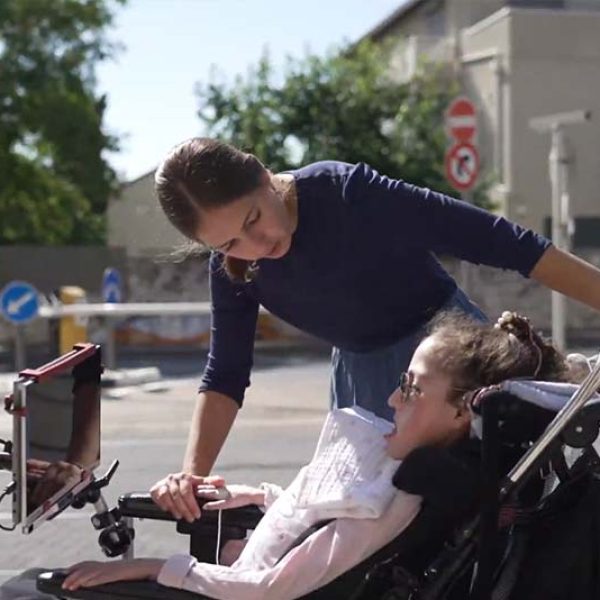
Systematic Accessibility from Early Childhood
Meshi systematically implements AAC tools starting from as early as age one— complementing targeted individual therapy and aiming to build adapted skills early on, even before clear speech or language gaps emerge.
This proactive strategy is especially impactful during toddlerhood, when communication is naturally limited and diagnoses are often ambiguous. Tools such as gestures, visual symbols, and photo-based images help strengthen both comprehension and expression—supporting emotional regulation, developmental progress, and bridging delays, with or without a formal diagnosis.
Access to advanced yet simple-to-use tools—like eye-gaze systems—helps children overcome both functional and age-related barriers, while enabling early, experience-based matching to optimal solutions.
Rooted in the Meshi Approach, this system-wide implementation applies across all Meshi Centers, including daycares, by Communication Facilitators and Assistive Technology teams.
